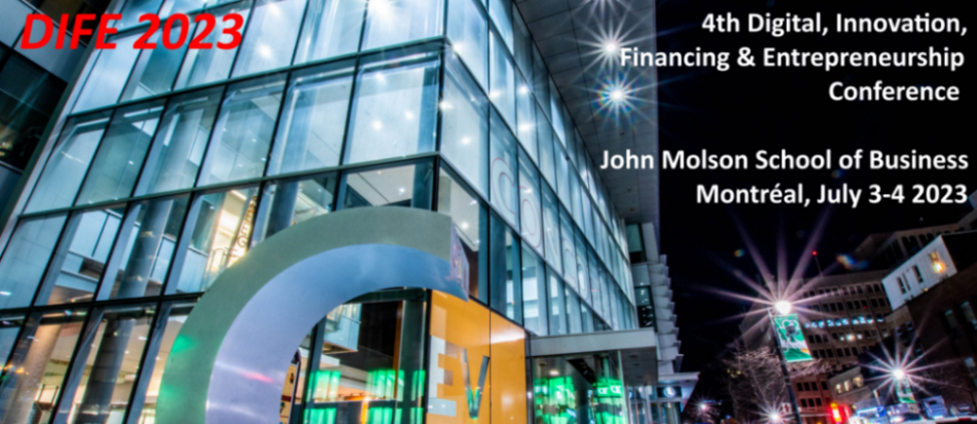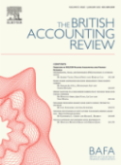
|
|
|
Workshops > Workshop on Digitalization in Accounting
This workshop will allow researchers and practitioners discuss and exchange with colleagues from around the world in the field of Digitalization in Accounting. All areas of Accounting are eligible, and special sessions on the following topics will be held: Digital and Blockchain Accounting Chairs: Prof. Emilio Boulianne (John Molson School of Business, Concordia University, CA) and Prof. Erica Pimentel (Smith School of Business, Queen’s University, CA) At the outset, blockchain was designed to revolutionize how payments could be made between computer users without the involvement of financial institutions to validate these transactions, and using a currency (i.e., cryptocurrency) not issued by a central bank instead (Nakamoto, 2008). Cryptoassets, running on a blockchain, may take different forms including cryptocurrencies (tokens used for payment), utility tokens (granting access to an application), asset tokens (securities issued) and hybrid tokens (for example, utility and payment token at once). The possibilities to create various types of tokens contribute to the debate on what they really are, challenging the accounting domain from how to audit transactions to how present cryptoassets in financial statements. Recent blockchain applications deployed in organizations may represent at a time threats and opportunities for accountants dealing with accounting systems. This special issue aims to respond to calls for more empirical work into actual and future blockchain applications, implementations, and utilizations (Pimentel and Boulianne, 2020; Schmitz and Leoni, 2019). Blockchain may have a significant impact on accounting systems and the role of accountants and auditors - whether in managerial accounting, financial reporting, financing, and other accounting domains (e.g., Centobelli et al. 2022; Coyne et al., 2017; Dai & Vasarhelyi, 2017; Dyball & Seethamraju, 2022; Liu et al., 2019; Lombardi et al., 2022; Pimentel and Boulianne, 2022). Some have offered more conceptual guidance and directions on this fluid and emerging technology (eg., Carrasco & Romi, 2022, Kuruppu et al., 2022, Pflueger et al., 2022, Tyma et al., 2022). Recent literature reviews provide insightful status-updates and plant relevant research directions for future blockchain developments (e.g., Bellucci et al., 2022; Garanina et al., 2022; Lardo et al., 2022, Moll & Yigitbasioglu, 2019). With this special issue, we aim to expand the knowledge base on blockchain in the accounting context, fostering empirical and conceptual work using various frameworks, paradigms and methods. Cryptoassets running on blockchains permit the development of new business models, including the creation of cryptocurrencies, digital platform exchanges, or raising funds through initial coin offerings (ICOs) (Boulianne and Fortin, 2020). An increasing number of organizations experiences or already accepts cryptocurrency for payments, which is a challenge for central banks. Others perform significant transactions using cryptoassets (including mining), which is a challenge for producing audited financial statements (Pimentel et al., 2021). These practice trends further highlight the importance to understand more about the potential of blockchain, and its impacts on accounting and accountants. This special issue aims to address the following topics and questions to enrich discussions and reflections on blockchain including, but not limited to: Blockchain and Accounting Information Systems
Blockchain, Governance and Regulation
Blockchain and Auditing
Blockchain, Internal control and Fraud
Blockchain and Management Accounting
Contact the chairperson to submit your paper to this workshop: erica.pimentel@queensu.ca and emilio.boulianne@concordia.ca Publication Opportunity in British Accounting Review.
Please click here for the Call for Papers! References Bellucci, M., Cesa Bianchi, D., Manetti, G. (2022). Blockchain in accounting practice and research: systematic literature review. Meditari Accountancy Research, 30(7), 121-146. Boulianne, E., Fortin, M. (2020). Risks and Benefits of Initial Coin Offerings: Evidence from Impak Finance, a Regulated ICO, Accounting Perspectives, 19(4), 413-437. Carrasco, H., & Romi, A. M. (2022). Toward an omniopticon: the potential of blockchain technology toward influencing vulnerable populations in contested markets. Accounting, Auditing & Accountability Journal, 35(7), 1685-1713. Centobelli, P., Cerchione, R., Del Vecchio, P., Oropallo, E., Secundo, G. (2022). Blockchain technology design in accounting: Game changer to tackle fraud or technological fairy tale? Accounting, Auditing & Accountability Journal, 35(7), 1566-1597. Coyne, J. G., McMickle, P. L. (2017). Can blockchains serve an accounting purpose? Journal of Emerging Technologies in Accounting, 14(2), 101-111. Dai, J., & Vasarhelyi, M. A. (2017). Toward blockchain-based accounting and assurance. Journal of Information Systems, 31(3), 5-21. Dyball, M. C., Seethamraju, R. (2022). Client use of blockchain technology: exploring its (potential) impact on financial statement audits of Australian accounting firms. Accounting, Auditing & Accountability Journal, 35(7), 1656-1684. Garanina, T., Ranta, M., Dumay, J. (2022). Blockchain in accounting research: current trends and emerging topics. Accounting, Auditing & Accountability Journal, 35(7), 1507-1533. Kuruppu, S. C., Dissanayake, D., de Villiers, C. (2022). How can NGO accountability practices be improved with technologies such as blockchain and triple-entry accounting? Accounting, Auditing & Accountability Journal, 35(7), 1714-1742. Lardo, A., Corsi, K., Varma, A., Mancini, D. (2022). Exploring blockchain in the accounting domain: a bibliometric analysis. Accounting, Auditing & Accountability Journal, 35(9), 204-233. Liu, M., Wu, K., & Xu, J. J. (2019). How will blockchain technology impact auditing and accounting: Permissionless versus permissioned blockchain. Current Issues in Auditing, 13(2), 19-29. Lombardi, R., de Villiers, C., Moscariello, N., Pizzo, M. (2022). The disruption of blockchain in auditing–a systematic literature review and an agenda for future research. Accounting, Auditing & Accountability Journal, 35(7), 1534-1565. Moll, J., Yigitbasioglu, O. (2019). The role of internet-related technologies in shaping the work of accountants: New directions for accounting research. The British Accounting Review, 51(6), 1-20. Nakamoto, S. 2008. Bitcoin: A peer-to-peer electronic cash system, https://bitcoin.org/bitcoin.pdf Pflueger, D., Kornberger, M., Mouritsen, J. A. N. (2022). What is Blockchain Accounting? A Critical Examination in Relation to Organizing, Governance, and Trust. European Accounting Review, 1-26. Pimentel, E., Boulianne, E., (2022). Competency Map Development as an Identity Movement: A Canadian Perspective, Accounting Education, 31 (5), 453-481. Pimentel, E., Boulianne, E., Eskandari, S., Clark. J. (2021). Systemizing the Challenges of Auditing Blockchain-Based Assets, Journal of Information Systems, 35 (2), 61-75. Pimentel, E., & Boulianne, E. (2020). Blockchain in accounting research and practice: Current trends and future opportunities. Accounting Perspectives, 19(4), 325-361. Schmitz, J., Leoni, G. (2019). Accounting and auditing at the time of blockchain technology: a research agenda. Australian Accounting Review, 29(2), 331-342. Tyma, B., Dhillon, R., Sivabalan, P., Wieder, B. (2022). Understanding accountability in blockchain systems. Accounting, Auditing & Accountability Journal, 35(7), 1625-1655. |


